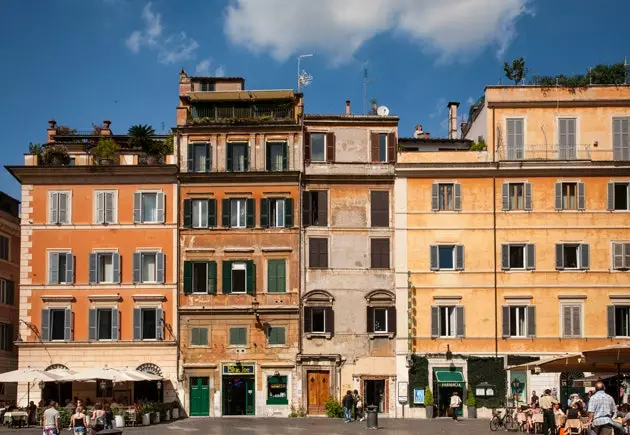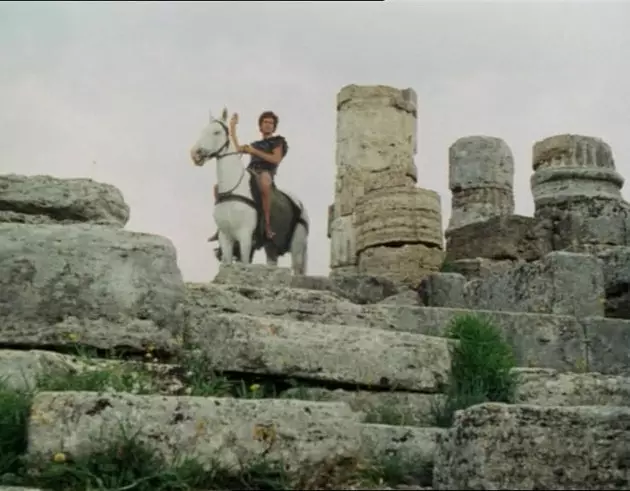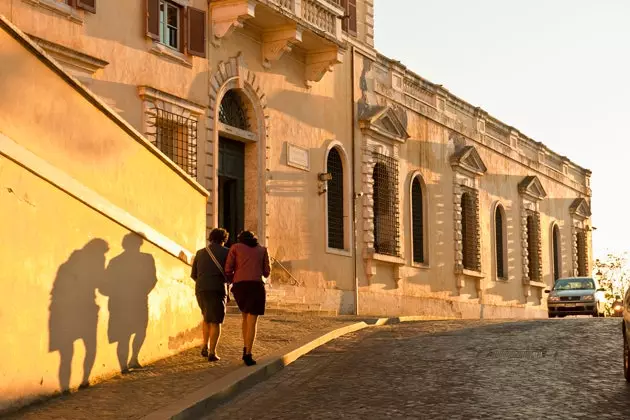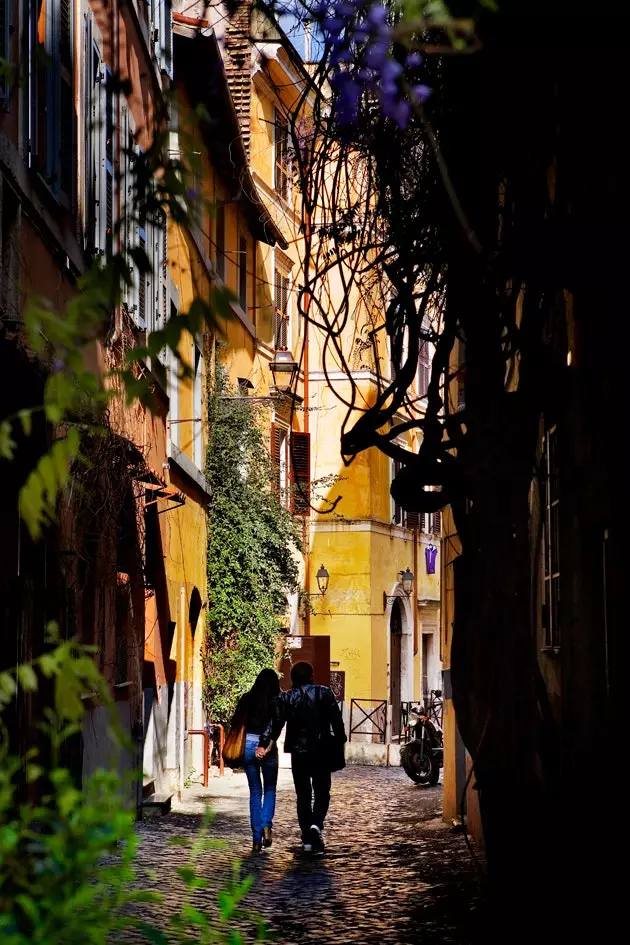
Semo tutti romani: what you should know about romanesco, the dialect of Rome
In his period, and despite the fact that Vittorio Gassman defended romanesco when he represented the politician of the Roman Republic in the famous film by Luigi Magni ( Scipione l'Africano ), only Latin was spoken as the official language.
It was in the Middle Ages, with the fall of the Empire, when the decline of this language began for the benefit of a popular dialect, informal, vulgar, fun, spontaneous, creative, folkloric, fresh, rich in colloquial expressions , worship of saints and, paradoxically, abuse of blasphemies such as Li mortacci tua! (known as Romanaccio , or elimination of the little subtlety that its predecessor presents) . Also the predilection of simple words for deep concepts. Pure philosophy.

Scipione l’Africano, reciting in romanesco
My first contact, and/or crush, with the Roman dialect took place three years ago, when I started working in a warehouse in the Italian capital located in the depths of Termini. I, who seven years before had done the Erasmus scholarship in Rome, arrived confident at the appointment to meet my new colleagues: all Romans, all speaking a language completely unknown to me. “Mo, nniamo a manja”, I used to always listen at mealtime. I ended up understanding that pasta, at noon, is not forgiven, despite the fact that in Italian it was said, and it is said: “ Adesso andiamo a mangiare”.
Unfortunately there, in clandestine places, periphery, in low funds or in meetings only of people born in the city (refrain from snobbish type The Great Beauty ) and only there, this language is spoken in quarantine. A staged way of life -when Rome was not yet the capital- which had Tuscan influences in the past, in its phonemes and grammar, to become disowned by Florence itself and some spheres of the church, that they preferred Dante, complex, disturbed, angry and elegant.
For centuries the Romanesque it was a proscribed language in a fragmented Italy , divided, without any identity as a nation. Therein lies his current hardship, but there is also his penitence, since he encouraged the creation of small microclimates with their tongues, customs, observing mirrors of an actor self, with all the genius and sensitivity that this entails on the part of the people. Rome, with its most important old quarters (Monti, Testaccio or Trastevere) It's pure theatre. A stage that lives solely on the magic of its actors taken from the street, who suffer from globalization. This captivated two poets who, through their sarcastic sonnets, forever saved the word of a people who were walking towards nowhere. And that today it is a species protected by danger of extinction.

In the most visceral Rome you will hear romanesco speak
Trilussa in the 20th century and Giuseppe Gioacchino Belli in the 19th century they managed to breathe a breath of fresh air into romanesco, giving it back a certain prestige throughout Italy and presenting it to the whole world. Carlo Alberto Camillo Mariano Salustri it was more current, and less complex for the reader. He published much of his hendecasyllabic verse in the Rugantine , a magazine -founded in 1848- whose name comes from the character who lived in Trastevere more than a hundred years ago: the trasteverino, also called. Dressed in patches, dirty, baggy rags that framed the perennial smile on his mouth.
With a sharp, sharp language, a dart in the word, Trilussa ( Er compagno scompagno , Stelle di Roma either The Statistics ) harshly criticized the years of fascism and the post-war years. Also some Vatican spheres. His texts, like those of Kafka or Orwell, can be extrapolated to today's society. Also, as in Belli ( The death with the coda, The creation of the monkey either Er giorno der giudizzio ), there is a lot of melancholy, human miseries, picaresque, disenchantment, deadly sins, inner anguish, mockery, fables and the urgent need to humanize the divine and caricature the profane.
The development of it arose at a key moment, precisely when Italy completed its unification after the battle of Porta Pia , in which the bersaglieri liberated the country from the hordes of the Pope. A year later, in 1871, Trilussa himself was born, and Rome was the capital . Once again located in the center of the world, it was an excellent breeding ground for the poet, who picked up the witness of his homonym and relaunched Romanesque as a way of expressing himself and conceiving the world. In the key of denunciation, humor and resignation... Because Rome is not understood, but accepted.
Many years have passed, the city has been filled with tourists and immigrants arriving from all over the country. Customs are being lost and the authentic natives that remain (Carlo Verdone, Francesco Totti, Gigi Proietti…) are sorry for a past time that was better. In that need to recover it, the Romanesque Academy , where a group of people (no one under 50) gathers to delve into and resurrect verses from the past, invent new ones, rescue songs by Gabriela Ferri or simply remember that Semo tutti romani.
And that is so great, and special, that it can never be forgotten. Their degree of presumptuousness is born when they began to conquer the ancient world; their weakness when, during the Middle Ages, they were reduced to a small town in the center of a boot-shaped piece of land occupied by different civilizations. isolated, naked, and only protected by the aurelian walls , became aware of the situation and hardened in the vicissitudes. Logical and normal that today they enact eternal life to one of their main weapons once: the word, its Romanesque dialect. It is the beginning of your current existence.
Follow @julioocampo1981
_ You may also be interested in..._* - The best street food in Rome (for Romans)
- I, Rome
- Graffiti cities (beyond Banksy)
- Roma Nuova: the modern eternal city
- 100 things about Rome you should know - The best places to eat in Rome
- Places in Trastevere where you won't find a single tourist
- Rome Guide

Trastevere, Romanesco neighborhood
